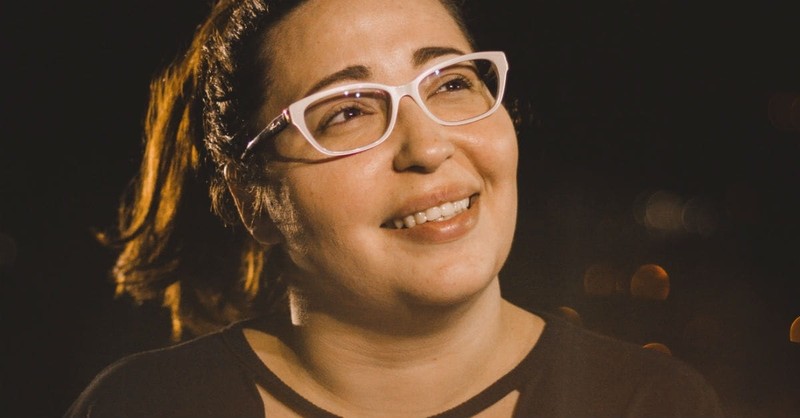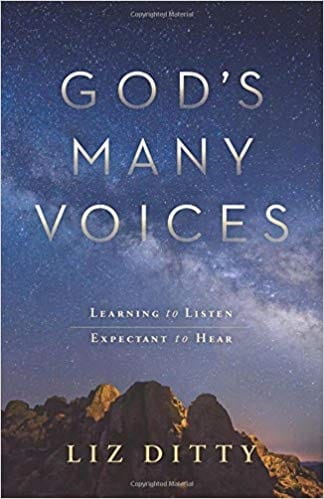
You might remember a time when you read the Bible for a day, a week, or longer only to feel that it didn’t live up to the promise to change your life or transform your connection to God. It’s easy to talk about how life-changing the words of God are, but they can feel dry, confusing, or unrewarding when we actually read them. I have to wake up to my alarm and walk past the pile of dishes that need to be washed and sit in the stillness of my living room knowing that whether or not I think I need water or sleep or time with God, I do. Getting through some of those mornings is still hard for me, but there are a few things that help a lot.
First, I tell myself I can’t bail in the first twenty minutes. If I can get twenty minutes into my time in Scripture, I’m usually forgetting why I didn’t think I could wake up. Second, I start with prayer and am totally honest about how I am coming to meet God and how focused or unfocused I am. Sometimes it feels good to get it off my chest, and sometimes it is therapeutic to hear how ridiculous I sound. Last, I try to read Scripture in different ways to mix things up.
Meditation, dedication, and contemplation are three of my favorite approaches to connecting with God’s story through His words. As we listen for God’s voice, we shouldn’t be surprised that we can learn to hear Him clearly in His own words.
Photo Credit: Unsplash/Paola Aguilar

1. Meditation
First, I hear God’s voice more clearly when I read the Bible practicing meditation.
For God’s voice to sink into our minds and hearts, His words have to be there frequently, and they have to stay awhile. That’s one reason the Bible tells us to meditate on the words of God. Eastern meditation is characterized by clearing your mind, but Christian meditation is about filling our mind with the words, thoughts, and images of Scripture.
Photo Credit: Unsplash/John Mark Smith

“Chase rabbit holes and get curious…”
There is no shortcut in meditation. You can’t just find the most popular verses in the Bible and choose one to sit with. Most often this kind of study focuses on a verse I couldn’t have predicted. A verse or phrase or even a single word surprises me when I’m doing something else, and I allow myself to be captured by it instead of rushing past it. It’s that simple. When you are listening for God in His Word, let Him get your attention, sidetrack you, surprise you. Chase rabbit holes and get curious about where else in the Bible that phrase shows up or what the context of that Old Testament quote is.
Photo Credit: Unsplash/Timothy Dykes

“I like to think of my time with God as an opportunity to enjoy His company.”
Meditating on God’s words helps us not to rush through and miss the fun of spending time with God. I like to think of my time with God as an opportunity to enjoy His company. Just like in any of my relationships, I need to really slow down to make that connection. To allow His words to really move through my mind, to engage my thoughts and emotions, to connect to my actual fears and desires. The Bible talks about us meditating day and night. Meditating on Scripture can help us start our day focused on God and His possibility and then end our day with a heart of gratitude and reassurance about the faithfulness of God.
Photo Credit: Unsplash/Nick Owuor

2. Dedication
In addition to meditation, I hear God’s voice more clearly when I read the Bible with dedication.
Having a set routine can help me continue to connect with God even on days I’m tired, lazy, or not feeling aware of His presence. The best way to read the Bible is to interact with it as often as you can. The Bible has its own language and nuances, not just in the translation that you use but also in the way the different genres read or in the literary devices that are utilized. The more you read the Bible, the more familiar you become with its themes, symbols, and structure. The Bible becomes easier to understand and more interesting to read.
Photo Credit: Unsplash/Aaron Burden

“Don’t give up.”
At whatever pace you decide to read the Bible, try using a journal to keep track of what questions you have, ideas that come to mind, and how your understanding of God and yourself is being stretched. Even if you don’t meet your goal or you miss a day or a week of reading, don’t be discouraged. The real goal is to keep going. Don’t give up. When you dedicate yourself to reading the Bible consistently over time, you might see changes in your attitude, lifestyle, and relationships that surprise you. God’s words will change us.
Photo Credit: Unsplash/Silvia Trigo

3. Contemplation
In addition to meditation and dedication, I hear God’s voice more clearly when I read the Bible with contemplation.
God’s words will flow of the page and wrap us in His goodness when we give them the space and attention they need. They are the starting point of a two-way conversation.
You see, the Holy Spirit inspired men and women to tell the history of God’s people and His plan of redemption in the Scriptures, and that same Spirit is inside of us. When we read Scripture, the same Spirit who knows the perfect intent of His own words is actively working in us to teach us the ways of God and help us move closer to Him. The Holy Spirit is a beautiful gift from God, and to try to read the Scripture exclusively from our own intellect and strength without Him will leave our experience with the Bible well below its divine potential.
Photo Credit: Unsplash/Jonathan Chen

“…read the Bible deeply and in conversation with God.”
Interestingly, throughout church history, Catholics, Protestants, and Puritans have all used basically the same approach to read the Bible deeply and in conversation with God. It has been called divine reading, Lectio Divina, or spiritual reading. Honoring the overlap and commonality of these diverse traditions, we can call it contemplative reading. The process looks something like this:
a. Prepare yourself to read.
b. Read the Scripture slowly and do so multiple times.
c. Let the Holy Spirit draw your attention to a word or phrase.
d. Pray about what you have read, asking the Holy Spirit to make its message personal.
e. Leave space to listen for God’s response.
Photo Credit: Unsplash/Franciele Cunha

“prepare your space and your mind to be still and focused.”
Before beginning contemplative reading, prepare your space and your mind to be still and focused. I like to light a candle and watch the fame for a moment or two. I know it’s not a burning bush and God is not in the fire, but the candle helps me focus and reminds me that I am setting this time and space aside to meet with God.
4. Transformation
Finally, God’s voice speaks to me through Scripture for my transformation.
Meditation, dedication, and contemplation are just three of the many pathways to encounter Scripture. Ultimately the goal is transformation: to be more like Jesus. When we spend the time to linger in Scripture, the hope is that God’s words will reshape our thoughts and character and purpose.
Photo Credit: Unsplash/Anthony Garand

“His words will change us forever.”
God’s voice isn’t just one of comfort. His words will change us forever. He loves us too much to let us stay the same. Our image of Him may be hazy or broken, but His imagination for how He can restore the ashes of our world is limitless. That story of redemption is the story the Bible sweeps us into. And nothing could be more worthy of our time and imagination.
 Taken from God’s Many Voices © 2018 by Liz Ditty, Used with permission by Worthy Books, an imprint of Worthy Publishing Group, a division of Worthy Media Inc., All Rights Reserved.
Taken from God’s Many Voices © 2018 by Liz Ditty, Used with permission by Worthy Books, an imprint of Worthy Publishing Group, a division of Worthy Media Inc., All Rights Reserved.
Liz Ditty is a speaker, writer, podcast host, and volunteer jail chaplain. Her upbringing in a fundamentalist cult where her father served as one of the elders and church planters taught her that women were to honor God through their submission and silence. At the age of 23 she left the church and her family. Over a decade of freedom later, Liz’s first goal in ministry is to encourage others who have heard the wrong story about God to take their questions and hurts straight to him. Liz lives with her husband Mike and two children, Olivia and Flint, in San Jose, CA, where she teaches regularly at the multiple campuses of WestGate Church.
Photo Credit: Unsplash/Me Shroud
Originally published Friday, 14 September 2018.









